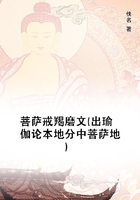About this time her friend, Miss Carmichael, returned from a rather lengthened visit. But after the atonement that had taken place between her and Donal, it was with some anxiety that lady Arctura looked forward to seeing her. She shrank from telling her what had come about through the wonderful poem, as she thought it, which had so bewitched her. She shrank too from showing her the verses: they were not of a kind, she was sure, to meet with recognition from her.
She knew she would make game of them, and that not good-humouredly like Kate, who yet confessed to some beauty in them. For herself, the poem and the study of its growth had ministered so much nourishment to certain healthy poetic seeds lying hard and dry in her bosom, that they had begun to sprout, indeed to shoot rapidly up. Donal's poem could not fail therefore to be to her thenceforward something sacred. A related result also was that it had made her aware of something very defective in her friend's constitution: she did not know whether in her constitution mental, moral, or spiritual: probably it was in all three. Doubtless, thought Arctura, she knew most things better than she, and certainly had a great deal more common sense; but, on the other hand, was she not satisfied with far less than she could be satisfied with? To believe as her friend believed would not save her from insanity! She must be made on a smaller scale of necessities than herself! How was she able to love the God she said she believed in? God should at least be as beautiful as his creature could imagine him! But Miss Carmichael would say her poor earthly imagination was not to occupy itself with such a high subject! Oh, why would not God tell her something about himself--something direct--straight from himself? Why should she only hear of him at second hand--always and always?
Alas, poor girl! second hand? Five hundredth hand rather? And she might have been all the time communing with the very God himself, manifest in his own shape, which is ours also!--all the time learning that her imagination could never--not to say originate, but, when presented, receive into it the unspeakable excess of his loveliness, of his absolute devotion and tenderness to the creatures, the children of his father!
In the absence of Miss Carmichael she had thought with less oppression of many things that in her presence appeared ghastly-hopeless; now in the prospect of her reappearance she began to feel wicked in daring a thought of her own concerning the God that was nearer to her than her thoughts! Such an unhealthy mastery had she gained over her! What if they met Donal, and she saw her smile to him as she always did now! One thing she was determined upon--and herein lay the pledge of her coming freedom!--that she would not behave to him in the least otherwise than her wont. If she would be worthy, she must be straightforward!
Donal and she had never had any further talk, much as she would have liked it, upon things poetic. As a matter of supposed duty--where she had got the idea I do not know--certainly not from Miss Carmichael, seeing she approved of little poetry but that of Young, Cowper, Pollok, and James Montgomery--she had been reading the Paradise Lost, and wished much to speak of it to Donal, but had not the courage.
When Miss Carmichael came, she at once perceived a difference in her, and it set her thinking. She was not one to do or say anything without thinking over it first. She had such a thorough confidence in her judgment, and such a pleasure in exercising it, that she almost always rejected an impulse. Judgment was on the throne; feeling under the footstool. There was something in Arctura's carriage which reminded her of the only time when she had stood upon her rank with her. This was once she made a remark disparaging a favourite dog: for the animals Arctura could brave even her spiritual nightmare: they were not under the wrath and curse like men and women, therefore might be defended! She had on that occasion shown so much offence that Miss Carmichael saw, if she was to keep her influence over her, she must avoid rousing the phantom of rank in defence of prejudice. She was now therefore careful--said next to nothing, but watched her keenly, and not the less slyly that she looked her straight in the face. There is an effort to see into the soul of others that is essentially treacherous; wherever, friendship being the ostensible bond, inquiry outruns regard, it is treachery--an endeavour to grasp more than the friend would knowingly give.
They went for a little walk in the grounds; as they returned they met Donal going out with Davie. Arctura and Donal passed with a bow and a friendly smile; Davie stopped and spoke to the ladies, then bounded after his friend.
"Have you attended the scripture-lesson regularly?" asked Miss Carmichael.
"Yes; I have been absent only once, I think, since you left," replied Arctura.
"Good, my dear! You have not been leaving your lamb to the wolf!"
"I begin to doubt if he be a wolf."
"Ah! does he wear his sheepskin so well? Are you sure he is not plotting to devour sheep and shepherd together?" said Miss Carmichael, with an open glance of search.
"Don't you think," suggested Arctura, "when you are not able to say anything, it would be better not to be present? Your silence looks like agreement."
"But you can always protest! You can assert he is all wrong. You can say you do not in the least agree with him!"
"But what if you are not sure that you do not agree with him?"
"I thought as much!" said Miss Carmichael to herself. "I might have foreseen this!"--Here she spoke.--"If you are not sure you do agree, you can say, 'I can't say I agree with you!' It is always safer to admit little than much."
"I do not quite follow you. But speaking of little and much, I am sure I want a great deal more than I know yet to save me. I have never yet heard what seems enough."
"Is that to say God has not done his part?"
"No; it is only to say that I hope he has done more than I have yet heard."















